
American Journal of Physiology-Regulatory, Integrative and Comparative Physiology
Scope & Guideline
Elevating the Standard of Physiological Scholarship
Introduction
Aims and Scopes
- Regulatory Physiology:
Research on the mechanisms by which organisms maintain homeostasis and respond to environmental changes, including studies on cardiovascular, respiratory, and metabolic regulation. - Comparative Physiology:
Investigations into physiological adaptations across species, emphasizing evolutionary perspectives and the functional significance of physiological traits. - Integrative Physiology:
Studies that examine how various physiological systems interact and integrate to produce adaptive responses, including neurophysiological and endocrine interactions. - Exercise Physiology:
Research focused on the physiological responses and adaptations to physical activity, including the effects of exercise on metabolic health, cardiovascular function, and muscle physiology. - Pathophysiology and Disease Models:
Exploration of physiological alterations in disease states and the use of animal models to understand human pathophysiology. - Environmental Physiology:
Studies examining how environmental factors such as temperature, altitude, and pollutants influence physiological processes and adaptations.
Trending and Emerging
- Metabolic Health and Disease:
A notable increase in studies addressing metabolic health, obesity, and associated disorders highlights the growing importance of understanding metabolic regulation and its implications for health. - Physiological Responses to Environmental Stressors:
Research examining how organisms adapt to various environmental stressors, such as hypoxia, heat, and pollutants, is emerging as a critical area of exploration, reflecting global environmental challenges. - Sex Differences in Physiology:
An increasing focus on sex differences in physiological responses and adaptations underscores the importance of understanding how biological sex affects health and disease outcomes. - Integrative Systems Biology:
There is a growing trend towards employing systems biology approaches to study the interactions of physiological systems, indicating a shift towards more holistic and complex models of physiology. - Impact of Early-Life Stress on Physiology:
Research exploring the long-term physiological effects of early-life stressors is gaining traction, emphasizing the importance of developmental physiology.
Declining or Waning
- Traditional Cardiac Physiology:
Research specifically focused on classic aspects of cardiac physiology, such as basic cardiac function and hemodynamics, appears less frequently, possibly overshadowed by studies integrating cardiac function with broader physiological systems. - Basic Neurophysiology:
Studies centered solely on neurophysiological mechanisms without a comparative or integrative approach have seen a decline, indicating a shift towards more complex interactions involving neurophysiology. - Static Models of Physiology:
Research employing static models or simplistic approaches to physiological questions is less common, reflecting a trend towards more dynamic and integrative experimental designs.
Similar Journals
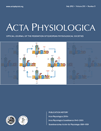
Acta Physiologica
Unveiling the Wonders of Human PhysiologyActa Physiologica is a premier, peer-reviewed journal published by WILEY, dedicated to the dissemination of high-quality research across the field of physiology. With an impressive impact factor reflective of its Q1 category ranking in Physiology for 2023, this journal is a vital resource for researchers, professionals, and students alike, seeking to explore the complexities of biological systems. The journal is indexed with a commendable Scopus rank of #18 out of 193 in its category, placing it within the top 10% of its field, which underscores its influence and citation frequency within the academic community. Acta Physiologica publishes a variety of articles that address fundamental physiological concepts, innovative methodologies, and cross-disciplinary research. With its open access options, the journal ensures that cutting-edge knowledge is readily accessible, fostering an environment of collaboration and advancement in the study of physiology. Spanning from 2006 to 2024, the journal continues to be at the forefront of physiological research and education, encouraging the global sharing of knowledge through its comprehensive content.
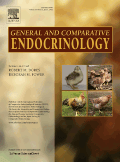
GENERAL AND COMPARATIVE ENDOCRINOLOGY
Pioneering insights into the endocrine landscape since 1961.GENERAL AND COMPARATIVE ENDOCRINOLOGY, published by Academic Press Inc Elsevier Science, is a distinguished journal that has been at the forefront of endocrine research since its inception in 1961. With an ISSN of 0016-6480 and an E-ISSN of 1095-6840, this journal caters to a diverse audience, including researchers, professionals, and students in the fields of animal science, zoology, and endocrinology. It holds a prestigious Q1 ranking in Animal Science and Zoology and is recognized in the Q3 quartile for Endocrinology, indicating its significant contribution to advancing scientific knowledge. The journal is also well-regarded within the Scopus rankings, with impressive placements in multiple categories, highlighting its impact and relevance in the academic community. By focusing on comparative analyses and fostering a deeper understanding of hormone function and regulation across species, GENERAL AND COMPARATIVE ENDOCRINOLOGY aims to bridge gaps in knowledge and stimulate innovative research paradigms. While it does not currently offer Open Access, the journal remains committed to high-quality peer-reviewed content, making it an essential resource for anyone engaged in this vital field of study.

JOURNAL OF PHYSIOLOGY AND PHARMACOLOGY
Elevating research standards in physiology and pharmacology.JOURNAL OF PHYSIOLOGY AND PHARMACOLOGY is a distinguished publication presented by the POLISH PHYSIOLOGICAL SOC, dedicated to advancing the fields of physiology and pharmacology. Since its inception in 1991, this journal has maintained a commitment to disseminating vital research findings, contributing to the growing body of knowledge essential for understanding complex biological systems and their interactions with pharmacological agents. With a consistent focus on interdisciplinary studies, the journal holds a Q3 categorization in both Medicine and Pharmacology as well as Physiology for 2023, reflecting its relevance in these crucial fields. Although specific access options are not available, the journal's robust indexing and rankings in Scopus signify its credibility and the high caliber of its contributions, appealing to researchers, professionals, and students alike. Operating from the picturesque Jagiellonian University in Krakow, Poland, this journal not only enriches the academic landscape but also fosters global collaboration and innovation in the life sciences.

Comparative Exercise Physiology
Connecting Research to Real-World Applications in ExerciseComparative Exercise Physiology is a peer-reviewed journal published by Wageningen Academic Publishers focused on advancing the scientific understanding of exercise physiology across various species and contexts. With its ISSN 1755-2540 and E-ISSN 1755-2559, it serves as a vital platform for disseminating research findings that bridge the gap between exercise science and comparative physiology, enriching the fields of biochemistry, biophysics, and sports medicine. The journal holds a notable position in the academic landscape, with a Q4 ranking in multiple categories and a commendable Q3 ranking in Orthopedics and Sports Medicine, highlighting its relevance and contribution to these domains. Although it operates without an Open Access model, the journal remains committed to providing well-researched and insightful articles that appeal to a diverse audience of researchers, professionals, and students aiming to enhance their knowledge and application of exercise physiology in both human and veterinary contexts. By fostering interdisciplinary dialogue and offering comprehensive insights, Comparative Exercise Physiology plays a crucial role in the pursuit of knowledge in the ever-evolving field of exercise science.

Physiology International
Elevating Standards in Physiological ResearchPhysiology International is a distinguished journal dedicated to the exploration and advancement of knowledge in the fields of physiology, sports medicine, and rehabilitation. Published by AKADEMIAI KIADO ZRT in Hungary, this open-access journal has been a reliable source of scholarly articles since its inception in 2016, providing valuable insights into both complementary and alternative medicine, as well as traditional medical practices. With an impact factor that situates it in Q2 and Q3 quartiles across related disciplines, including Physical Therapy, Sports Therapy and Rehabilitation and Orthopedics and Sports Medicine, it represents a vital resource for professionals and researchers looking to stay abreast of the latest findings and methodologies. The journal is indexed on Scopus, signifying its credibility and relevance in the medical community. As it continues to develop through 2024, Physiology International invites contributions that challenge existing paradigms and foster innovative approaches to health and wellness, making it an essential platform for advancing the conversation in medical physiology and its applications.

Comprehensive Physiology
Connecting Researchers to Cutting-Edge DiscoveriesComprehensive Physiology is a premier journal published by WILEY, dedicated to the profound exploration of physiological science. With an impact factor that underscores its significance within the field, this journal serves as a pivotal resource for researchers, professionals, and students alike, ensuring access to cutting-edge studies and reviews that span various domains of physiology. It stands proudly in the Q1 category across multiple subfields including Medicine (miscellaneous), Physiology, and Medical Physiology, reflecting its outstanding position within the scientific community. Evaluated within prestigious bibliometric ranks, it boasts an impressive Scopus ranking, placing it in the 12th percentile for medical physiology and 23rd percentile in biochemical, genetic, and molecular physiology. As it converges from 2011 to 2024, Comprehensive Physiology continues to foster a platform for innovative discoveries and collaborative exchanges, thereby contributing significantly to the advancement of medical knowledge and understanding of physiological processes.
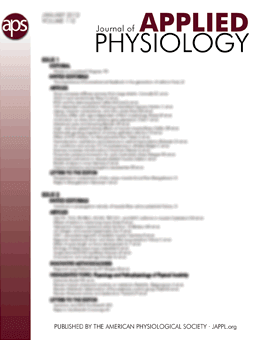
Journal of Applied Physiology
Championing Excellence in Physiological Research.The Journal of Applied Physiology, established in 1948 and published by the American Physiological Society, stands as a cornerstone in the field of physiology and applied health sciences. With an impact factor reflecting its rigorous scholarly contributions, this peer-reviewed journal ranks in the Q1 category for both Medicine (miscellaneous) and Physiology as of 2023, further emphasizing its prestige and relevance. Researchers and practitioners are drawn to its comprehensive scope, which includes physiological and biomechanical responses relevant to health, exercise, and clinical practices, making it an essential resource for advancements in sports science and medical physiology. Though it does not offer Open Access, the journal provides a wealth of high-quality research, with contributions that are crucial for understanding the complexities of human physiology. Its inclusion in Scopus ranks demonstrates a solid commitment to advancing knowledge in the field, appealing to a diverse audience of researchers, professionals, and students committed to exploring the intricate interactions between physiological processes and applied health.

Physiological Reports
Exploring Innovative Insights into Biological ProcessesPhysiological Reports is a pioneering open-access journal published by WILEY, dedicated to advancing the field of physiology through the dissemination of high-quality research. Since its inception in 2013, this journal has provided a platform for innovative studies in both general physiology and medical physiology, making significant contributions to our understanding of biological processes. With an impact factor that reflects its growing influence—as evidenced by its placement in the Q2 category for physiology and medical physiology in 2023—Physiological Reports is positioned as a vital resource for researchers and practitioners alike. The journal encourages the submission of diverse studies ranging from cellular mechanisms to systemic physiology, presenting a unique opportunity for authors to reach a global audience without access barriers. It has established a reputation for rigorous peer review and timely publication, ensuring that cutting-edge research is readily available to stimulate further inquiry and collaboration in the scientific community.
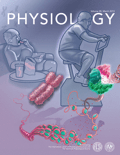
PHYSIOLOGY
Exploring the Depths of Physiological KnowledgePHYSIOLOGY, published by the American Physiological Society, is a leading peer-reviewed journal that has attained an impressive Q1 ranking in the field of Physiology, underscoring its significance in advancing research and knowledge dissemination. With a robust impact factor reflective of its high-quality publications, this journal serves as a critical platform for researchers and professionals to publish their innovative findings. Offering open access options, PHYSIOLOGY ensures wide accessibility to cutting-edge research that spans various aspects of physiological sciences. The journal's dedicated focus on interdisciplinary research enhances its appeal to a diverse audience, facilitating collaborations and discussions that push the boundaries of our understanding in physiology. Established in 2004 and converging toward 2024, PHYSIOLOGY stands at the forefront of scientific inquiry, making a substantial impact in the fields of biochemistry, genetics, and molecular biology.
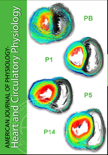
AMERICAN JOURNAL OF PHYSIOLOGY-HEART AND CIRCULATORY PHYSIOLOGY
Transforming cardiovascular research into clinical practice.AMERICAN JOURNAL OF PHYSIOLOGY-HEART AND CIRCULATORY PHYSIOLOGY, published by the American Physiological Society, is a premier journal dedicated to advancing the understanding of cardiovascular physiology. With an ISSN of 0363-6135 and an E-ISSN of 1522-1539, this esteemed journal has been a vital resource since its inception in 1977, and continues to publish cutting-edge research that shapes the fields of cardiology and physiology. Recognized as a Q1 journal in multiple categories, it ranks impressively within the top tier of its fields, including a notable 18th percentile rank in Physiology (medical). The journal’s impact factor and extensive reach in the academic community affirm its significance in promoting innovative studies and insights. While it does not offer open access options, the journal remains accessible through institutional subscriptions, making it an essential tool for researchers, professionals, and students alike, who are keen to stay abreast of the latest developments in heart and circulatory physiology. For further information, the journal is based in the United States at 6120 Executive Blvd, Suite 600, Rockville, MD 20852. As a cornerstone of cardiovascular research, it invites contributions that push the boundaries of knowledge and enhance clinical practice.